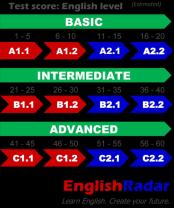What is the easiest second language to learn?
The ease of learning a second language depends on various factors, including your native language, personal interests, and the resources available for learning. What might be considered the "easiest" second language for one person may not be the same for another. However, some languages are often cited as relatively easier to learn for English speakers due to certain similarities or resources available:
Spanish: Spanish is a popular choice for English speakers because of its widespread use, straightforward pronunciation, and numerous resources for learning. The grammar is generally less complex than some other languages.
French: French shares many words with English due to historical ties, and it has a similar alphabet. While French pronunciation can be challenging, its grammar rules are consistent.
Italian: Italian is known for its phonetic pronunciation and relatively simple grammar. If you're interested in art, music, or cuisine, learning Italian can be particularly enjoyable.
German: German and English share a common Germanic root, which means some vocabulary similarities exist. The grammar is more complex, but the language is known for its logical and systematic structure.
Dutch: Dutch is another Germanic language with some vocabulary similarities to English. It is often considered one of the easier Germanic languages for English speakers to learn.
Portuguese: Portuguese is closely related to Spanish and shares some similarities in vocabulary and grammar. Learning one of these Romance languages can facilitate the learning of the other.
It's important to note that what may make a language easier for you to learn can be influenced by your personal interests and motivation. Additionally, the level of difficulty can vary based on your starting point and the effort you put into learning.
Ultimately, the "easiest" second language to learn is the one you are most motivated to learn and are willing to dedicate time and effort to. If you have a particular interest in a language or its culture, that can be a strong motivator for successful language learning.






